[Editorial] “How do girls know how to do that?”: Female Adaptation and Evolution in Spring (2014) Part 1
*Content warning-this article contains discussion of sexual assault and real-life violent crime which some readers may wish to avoid. *
The time spent under lockdown due to the pandemic has meant audiences often turned to films and television for comfort, escapism or even challenge as we have had an almost unlimited amount of time to worry about our own place and role on the planet, given that time and space has arguably never been more important to people. Far from a world being on pause, the last two years have been a rolling negotiation with the status quo and the inequality that it can foster, prompting a deeper introspection for many. The disruption from the normal flow of life allowed events to be held in sharper focus, opening the way for often painful, vulnerable conversation.
In March 2021, a woman in the UK, close to my age, was murdered. Unfortunately, Violence against women is not a rare occurrence, with rates for 2020 being around one murder every three days. You can find further sobering reading on this BBC explainer that also delves a little into the differences in gendered violence in the UK. Also within the explainer is the detail that “seven out of 10 women had experienced some form of sexual harassment in public”. This is from a survey, because as a rule, the kind of public harassment spoken about is rarely reported to police or recorded officially. It is, to put it simply, a part of visibly presenting as female in public. As a result, we are all given a set of largely unspoken rules to keep ourselves and one another safe – each new rule added at the expense of a woman who fell foul of one we didn’t realise we were meant to be following. A walk home at night for a woman, should anything terrible happen to her, places her under the microscope as much as (or even more than) an attacker – everything from what she is wearing, what she has drunk and even why she was out alone at all become the subject of discussion rather than the perpetrator. The murder in March prompted an outpouring of grief from women, detailing our own attacks, near-misses or experiences that they had never verbalised before, internalised as trivial in the grand scheme of things, or serious but with the baggage of embarrassment because they felt they did something wrong. Social media, private talks and group chats all became shared spaces for purging that trauma by way of shared experience. I found myself turning to a mix of popular culture and trying to understand at least some of the science behind how we have ended up in this position, finding comfort in Sara Pascoe’s Animal most of all, which became an entry point for thinking about it in more detail. So often, assumptions about the ways that men and women behave rest on evolutionary theory – a supposedly undeniable lineage that explains exactly why we are in the situation we are, and in some terms, one that makes us responsible for our own treatment.
What does all this have to do with a horror film? Spring’s exploration of Louise, a woman who has learned, not just from women within a natural lifetime, but across species, geographies and time, provides a fascinating take on the relationship between learned knowledge and biological evolution. It also probes how deeply held scientific ideas cross over into social and cultural life, with long-held assumptions becoming ‘facts’ by virtue of repetition, placing humans into strict ideals based on the way things should be because they are linked to supposedly indisputable biology. Louise and Evan’s discussions about now-established things originally being the subject of mythological horror act as a mirror for what the film flirts with: an acknowledgement of previous scientific understanding with the hope for further discovery and re-examination. Secondly, and on a far more superficial level, the film’s incredible photography of Italy is likely the closest many of us have been to a holiday in some time and the beauty of it provides at least some degree of escapism, as does the romance of the central plot.
This first section seeks to explore a little of how Spring finds its footing in contested ideas about human sexuality, evolution and monogamy.
In terms of poorly translated scientific ideas reaching public consciousness, the now largely debunked idea that we regenerate all our cells every seven years, could well contribute to the concept of the ‘seven-year itch’, cited as a point at which marriages fail due to both people essentially being entirely different people than they were at the beginning of the marriage. There is now more evidence for the idea that human pair bonding does not particularly suit long-term monogamy or ‘happily ever after’, so in evolutionary terms it is more beneficial for a couple to have children, raise them until around 4 (when other family members/community can take a more active role in their care) and then head off to have other children with other people. That is not a particularly warm or fluffy sentiment. In addition, attempts to rewrite this narrative tend to prompt anger from many academics – the response to Sex at Dawn, for example, ranges from questioning the authors’ scientific experience on a professional level to accusing it of being dangerous. Sex at Dawn seeks to reframe the accepted narrative of women as transactional, trading access to sex for male security to something more shared and layered.
Released in 2014 (yes, seven years ago, to stay on theme), Spring is Aaron Moorhead and Justin Benson’s second feature, after their festival hit Resolution. The film was praised by the likes of Guillermo Del Toro for its effective handling of the romantic and horror elements. Moving from the confines of a cabin, but still retaining a focus on the intensity of a central relationship, Spring follows Evan (Lou Taylor Pucci) on a trip to Italy following the death of his mother. Initially finding companionship with Thomas (Nick Nevern) and Sam (Jonathan Silvestri), he meets Louise (Nadia Hilker) and they form an instant connection. Keen to pursue her, Evan takes a job with farmer Angelo (Francesco Carnelutti) to stay in the area. However, their growing relationship is put at risk by Louise’s dark secret. Louise has a unique brand of immortality that she sustains by using stem cells in pregnancy, taking on some of the traits of her male partner. Molly Henery has already written a wonderful article about how this echoes menstruation, while taking it to the extremes of horror.
While this is mostly an appreciation of Louise as an empowering symbol of female adaptability, there must be some attention paid to the way that Evan is presented, thanks in no small part to Lou Taylor Pucci’s excellent performance. The film picks up with Evan at a time of grief, intimately showing the last conversation he has with his ailing mother before her death. He is established as a carer and someone who has put much of the rest of his life on hold to undertake that care. An altercation in a bar results in him lashing out when provoked and soon he finds himself without a job too. His friend Tommy’s (Jeremy Gardner) advice to call on a ‘sympathy fuck’. When Jackie (Augie Duke) asks him how he feels about her, he can only shrug. His lack of inclination to lie to her about how he feels calls a halt to their hook up and his honesty becomes a defining trait. This continues in his interactions with Thomas and Sam, who watch as he attempts to talk to a group of women and is shut down. Seemingly unmoved by the rejection, he goes back to the table, neither blaming himself for his approach or the women not being interested. Any overt display of anger, or what we’d usually term toxic masculinity punishes Evan. His initial fight at the bar results in an injury to his hand and the loss of his job. The hand injury returns later, following Louise’s revelation prompts him to hit yet another wall.
During their initial interactions at the bar he tells her he needs to make sure that she is the ‘kind of crazy’ he can deal with. It is notable that Louise’s forwardness in asking him to go home with her immediately is treated with suspicion and conflated with criminal activity. He first suspects that she is a sex worker, then that she intends to rob him. Of course, Evan’s trademark honesty means he directly calls this out, but it is still notable that despite his upfront nature, he finds it difficult to be confronted by someone else’s, especially when it concerns a woman not playing exactly by the ‘rules’. Evan is also painted in contrast to the American tourists that arrive later in the film. Like his earlier travel companions they are loud, brash and positioned as oppositional to Evan. The greatest contrast, however, comes when one of them approaches Louise as she tries to keep her transformation under control. He approaches her, first under the assumption that she is a sex worker he can pay, but when he receives no response, this escalates into something far more predatory. Throughout the film, Louise is positioned as more than able to stand her ground verbally, so it is key here that she is at her most vulnerable in a human sense and so the natural, evolved instincts take over and instantly deal with the immediate threat. That the tourist is dispatched on the rocks missing his testicles (which just so happen to contain a chemical required for Louise’s upkeep) is a further nod to that evolved response and the cycle she is caught in. Scientific studies (undertaken by Meredith Chilvers) have found that women’s vaginas self-lubricate when faced with any sexual material (as opposed to men who experienced arousal only when shown what they were into) as a phenomenon possibly influenced by an evolutionary response to rape that allows the female body to protect itself from damage. Louise's primordial, creature-based response is merely a more extreme, supernaturally influenced version of genuine human adaptability. That women may be subject to a very specific form of violence has altered our biology as much as our behaviour.
This is not to be heteronormative, of course. While people who cite evolutionary theory do so usually to make a point about how it shapes our behaviours, that somewhat misses the point, because we don’t witness evolution in action and almost all of our early, now accepted evolutionary understanding is built off the back of the likes of Charles Darwin, whose various anxieties and puritanism just could not see anything other than the standard model of men seeking to win sex from women, like a prize and ignores most gender or sexuality difference. Christopher Ryan and Cacilda Jethá’s book Sex at Dawn puts this rather more bluntly: “Darwin says your mother’s a whore. Simple as that”. The usual understanding of human sexuality makes this transactional and women are framed as mostly passive. In Spring, Louise’s survival is based on severance from the kind of prescribed monogamy that is said to be the standard model for human relationships and evolution. Yes, the end does have ‘love’ win out over everything else, but it is the result of a relationship forged on both parties falling for one another based on their actions and that trust allows them to leave it up to the hormones. In Spring it is Evan who risks the potential for violence if he has fallen for the wrong person, rather than Louise being at risk.
The film finds its most steadfast proponent of monogamy in Angelo, the farmer that Evan stays with. Angelo showcases a splicing technique, in which he has two forms of fruit grow on the same tree. He is presented as being loyal to his deceased wife, who he still idolises. For Angelo, she was The One and no other woman can compare to her. He speaks highly of women as a collective but retains his focus on her. His entire worldview, including the way he farms is driven by his connection to one person, one perfect match and turns everything into a union. Louise, meanwhile, represents the opposite – the richness of multiple partners imparting knowledge and sharing experiences, but with no connection based on the individual. When discussing that the process can be stopped by oxytocin, she is keen to clarify that she isn’t a sociopath or incapable of love, but has been really unlucky, a further mark of her often painful evolution. During a conversation with Evan, she remarks that she thinks his ‘opinion of men is too high’. It is a phrase we’ve all heard (and probably said) as women who have only lived one lifetime, so there is no telling how much cruelty and risk Louise has dodged during her time. Both views find themselves represented with care; two sides of the same coin that allow for the variety of human relationship experience without judgement. The film allows for the space that you are driven exclusively by hormones, science and the decisions of your ancestors but also that love is a real, often intangible thing that creates a bond that shouldn’t make sense. It is perhaps best encapsulated by Evan’s ‘maybe that’s chemical but it’s also magic’. That Evan’s parents were only separated by death and Angelo’s emotional response to the loss of his wife, it is no surprise that he sees the loss of Louise as something that will ‘really fucking hurt’ even without the presence of angry tentacles. This first section has positioned Spring’s treatment of monogamy, evolution and survival instincts, mostly in terms of how the male characters experience it.
Part two delves further into the representation of Louise as a woman in horror, more crazy hormones and even a little religion.
References
Jetha, C. and Ryan, C., 2012. Sex at Dawn. HarperCollins.
Pascoe, S., 2017. Animal. Faber & Faber.
Diogo, Rui. (2019). Sex at Dusk, Sex at Dawn, Selfish Genes: How Old-Dated Evolutionary Ideas Are Used to Defend Fallacious Misogynistic Views on Sex Evolution. 350-367.
Monsters, a., 2021. Monsters, Menstruation, and Cosmic Love in 'Spring' | Certified Forgotten. [online] Certified Forgotten. Available at: <https://certifiedforgotten.com/spring-movie/>
BBC News. 2021. How many violent attacks and sexual assaults on women are there?. [online] Available at: <https://www.bbc.co.uk/news/explainers-56365412>
Nytimes.com. 2021. What do women want? (Published 2009). [online] Available at: <https://www.nytimes.com/2009/01/23/health/23iht-25desiret.19636765.html>


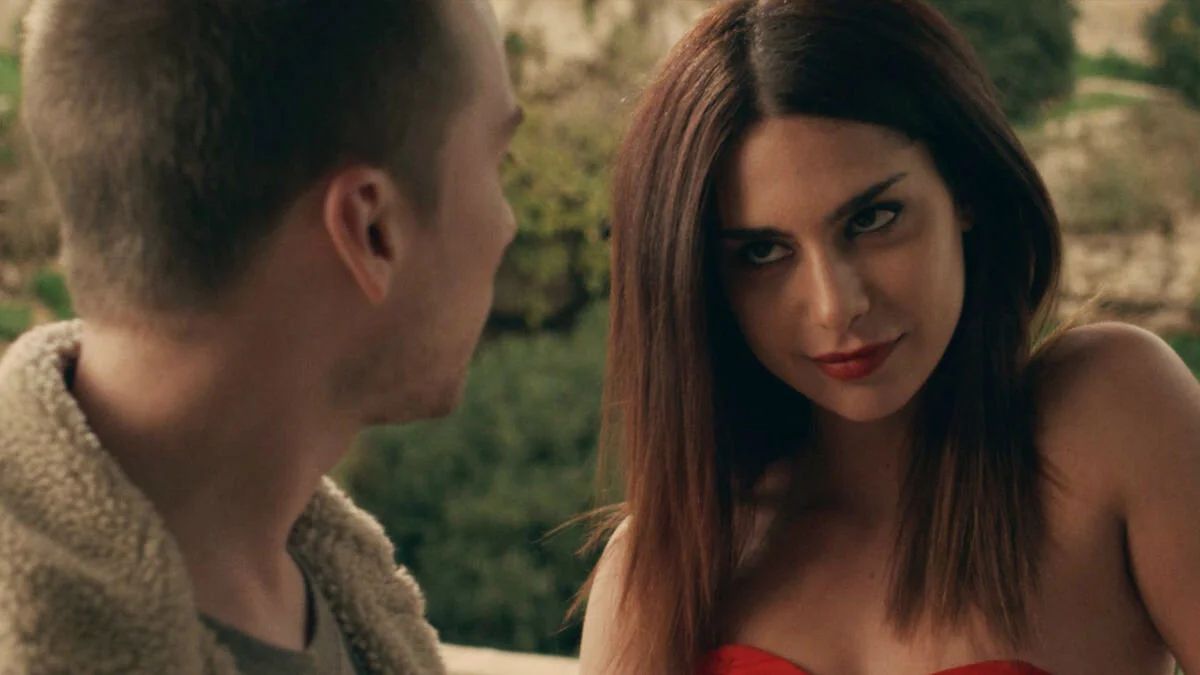
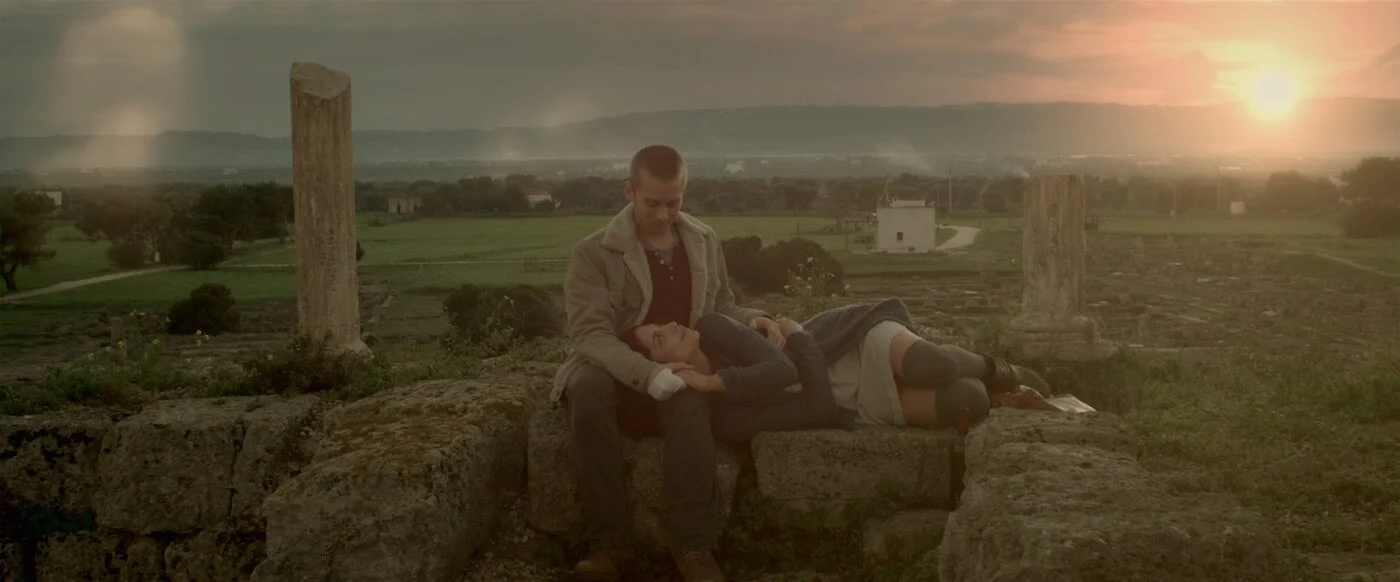
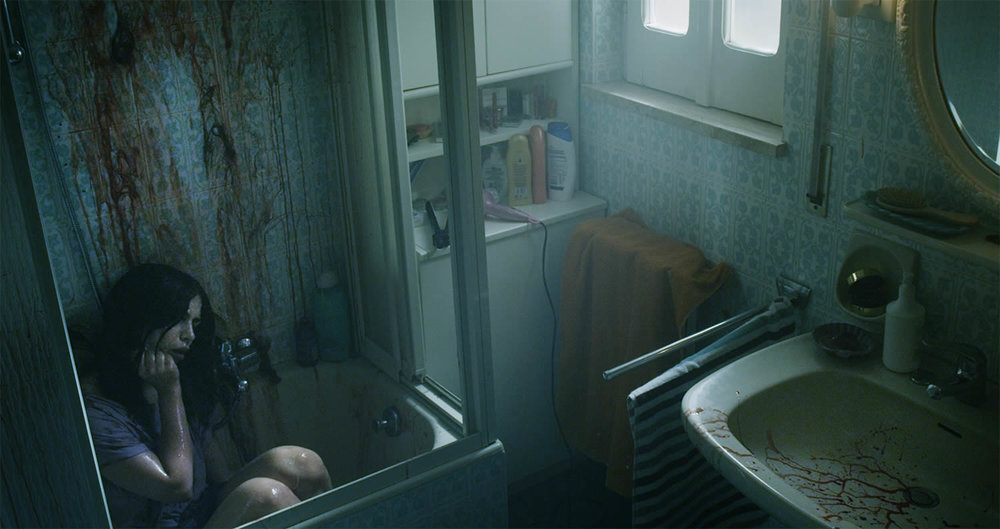
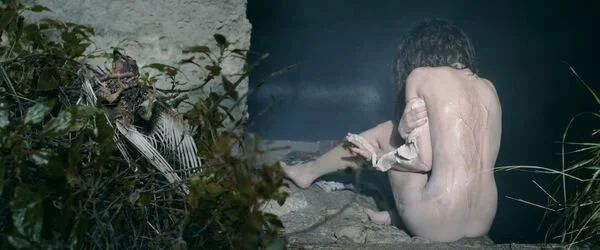
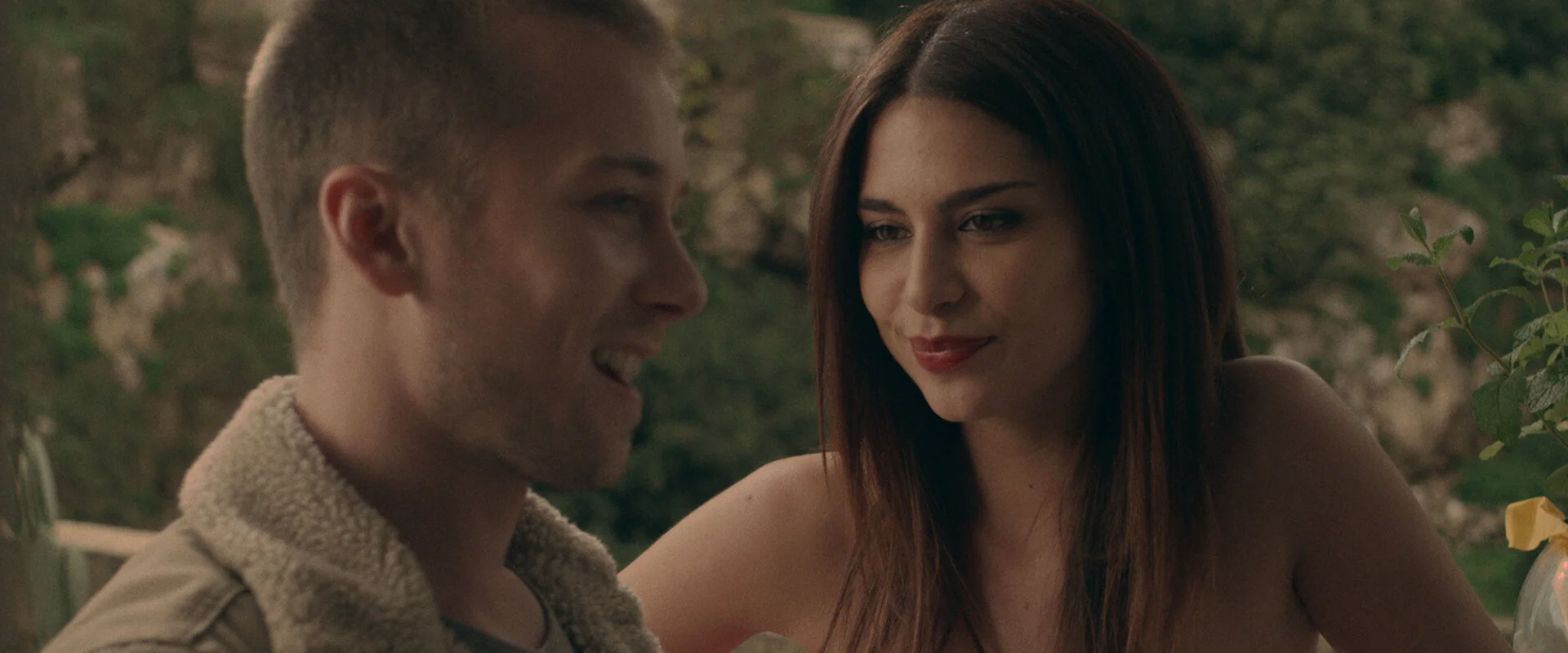
![[Editorial] 5 Slasher Short Horror Films](https://images.squarespace-cdn.com/content/v1/5fe76a518d20536a3fbd7246/1696358009946-N8MEV989O1PAHUYYMAWK/Screenshot+2023-10-03+at+19.33.19.png)
![[Ghouls Podcast] Maniac (2012) with Zoë Rose Smith and Iona Smith](https://images.squarespace-cdn.com/content/v1/5fe76a518d20536a3fbd7246/1696356006789-NYTG9N3IXCW9ZTIJPLX2/maniac.jpg)
![[Editorial] If Looks Could Kill: Tom Savini’s Practical Effects in Maniac (1980)](https://images.squarespace-cdn.com/content/v1/5fe76a518d20536a3fbd7246/1694952175495-WTKWRE3TYDARDJCJBO9V/Screenshot+2023-09-17+at+12.57.55.png)
![[Editorial] Deeper Cuts: 13 Non-Typical Slashers](https://images.squarespace-cdn.com/content/v1/5fe76a518d20536a3fbd7246/1694951568990-C37K3Z3TZ5SZFIF7GCGY/Curtains-1983-Lesleh-Donaldson.jpg)
![[Editorial] Editor’s Note: Making a slash back into September](https://images.squarespace-cdn.com/content/v1/5fe76a518d20536a3fbd7246/1694354202849-UZE538XIF4KW0KHCNTWS/MV5BMTk0NTk2Mzg1Ml5BMl5BanBnXkFtZTcwMDU2NTA4Nw%40%40._V1_.jpg)
![[Editorial] 8 Mind Horror Short films](https://images.squarespace-cdn.com/content/v1/5fe76a518d20536a3fbd7246/1693504844681-VPU4QKVYC159AA81EPOW/Screenshot+2023-08-31+at+19.00.36.png)
![[Editorial] Eat Shit and Die: Watching The Human Centipede (2009) in Post-Roe America ](https://images.squarespace-cdn.com/content/v1/5fe76a518d20536a3fbd7246/1691245606758-4W9NZWE9VZPRV697KH5U/human_centipede_first_sequence.original.jpg)
![[Editorial] Top 15 Female-Focused Mind Horror Films](https://images.squarespace-cdn.com/content/v1/5fe76a518d20536a3fbd7246/1691247166903-S47IBEG7M69QXXGDCJBO/Image+5.jpg)
![[Editorial] 8 Body Horror Short films](https://images.squarespace-cdn.com/content/v1/5fe76a518d20536a3fbd7246/1690838270920-HWA5RSA57QYXJ5Y8RT2X/Screenshot+2023-07-31+at+22.16.28.png)
![[Editorial] Metal Heart: Body Dysmorphia As A Battle Ground In Tetsuo: The Iron Man (1989)](https://images.squarespace-cdn.com/content/v1/5fe76a518d20536a3fbd7246/1690190127461-X6NOJRAALKNRZY689B1K/Screenshot+2023-07-24+at+10.08.27.png)
![[Editorial] Top 15 Female-Focused Body Horror Films](https://images.squarespace-cdn.com/content/v1/5fe76a518d20536a3fbd7246/1689081174887-XXNGKBISKLR0QR2HDPA7/download.jpeg)
![[Editorial] Editor’s Note: Getting sticky, slimy & sexy with body horror](https://images.squarespace-cdn.com/content/v1/5fe76a518d20536a3fbd7246/1689072388373-T4UTVPVEEOM8A2PQBXHY/Society-web.jpeg)
![[Ghouls Podcast] The Last House on the Left (2009) with Zoë Rose Smith and Jerry Sampson](https://images.squarespace-cdn.com/content/v1/5fe76a518d20536a3fbd7246/1687863043713-54DU6B9RC44T2JTAHCBZ/last+house+on+the+left.jpg)
![[Editorial] They’re Coming to Re-Invent You, Barbara! Night of the Living Dead 1968 vs Night of the Living Dead 1990](https://images.squarespace-cdn.com/content/v1/5fe76a518d20536a3fbd7246/1687199945212-BYWYXNBSH00C4V3UIOFQ/Screenshot+2023-06-19+at+19.05.59.png)
![[Editorial] 8 Short & Feature Horror Film Double Bills](https://images.squarespace-cdn.com/content/v1/5fe76a518d20536a3fbd7246/1687770541477-2A8J2Q1DI95G8DYC1XLE/maxresdefault.jpeg)

![[Editorial] Soho Horror Film Festival: Interview with Aimee Kuge on Cannibal Mukbang](https://images.squarespace-cdn.com/content/v1/5fe76a518d20536a3fbd7246/1701808004722-9M8SZ2UXY52QBQBR4NTI/img20230818_15150780.JPG)
![[Editorial] 10 Films & Events to Catch at Soho Horror Film Fest 2023](https://images.squarespace-cdn.com/content/v1/5fe76a518d20536a3fbd7246/1700819417135-299R7L4P0B676AD3RO1X/Screenshot+2023-11-24+at+09.41.52.png)
![[Editorial] 9 Horror Nintendo Switch Games To Play](https://images.squarespace-cdn.com/content/v1/5fe76a518d20536a3fbd7246/1697214470057-3XZXX8N4LYIMDFWS6Z3P/Screenshot+2023-10-13+at+17.20.13.png)
![[Mother of Fears] Mothering in Silence in A Quiet Place (2018)](https://images.squarespace-cdn.com/content/v1/5fe76a518d20536a3fbd7246/1696445921315-HZJ2DZYQIH6VVWXBO2YL/Screenshot+2023-10-04+at+19.52.29.png)
![[Event Review] Highlights from Mayhem Film Festival 2023](https://images.squarespace-cdn.com/content/v1/5fe76a518d20536a3fbd7246/1697624582491-MPT2VB9RRGU6OG7L6UKL/Mayhem+2023.jpg)
![[Editorial] Mayhem Festival: Interview with Thomas Sainsbury on Loop Track (2023)](https://images.squarespace-cdn.com/content/v1/5fe76a518d20536a3fbd7246/1697186472899-WC4RR0TW7L7LMFEBGPA2/Tom+Sainsbury.jpg)
![[Editorial] Keeping Odd Hours: A Retrospective on Near Dark (1987)](https://images.squarespace-cdn.com/content/v1/5fe76a518d20536a3fbd7246/1696445070868-HU9YIL3QPBCL1GW47R3Z/Screenshot+2023-10-04+at+19.36.53.png)
![[Editorial] 5 Female Focused Horror Book Recommendations](https://images.squarespace-cdn.com/content/v1/5fe76a518d20536a3fbd7246/1696441981361-52EQCTJ7AT2QF1927GM7/919xtm6d3fL._AC_UF894%2C1000_QL80_.jpg)
![[Editorial] What to Watch at This Year's Cine-Excess International Film Festival 2023](https://images.squarespace-cdn.com/content/v1/5fe76a518d20536a3fbd7246/1697213510960-REV43FEOZITBD2W8ZPEE/Screenshot+2023-10-13+at+17.01.15.png)
![[Editorial] Cherish Your Life: Comfort in the SAW Franchise Throughout and Beyond the COVID-19 Pandemic](https://images.squarespace-cdn.com/content/v1/5fe76a518d20536a3fbd7246/1695487675334-MYPCPYYZQZDCT548N8DI/Sc6XRxgSqnMEq54CwqjBD5.jpg)
![[Editorial] The Art of Horror in Metal](https://images.squarespace-cdn.com/content/v1/5fe76a518d20536a3fbd7246/1695486401299-E5H2JNNJT26HKN0CI7WC/Screenshot+2023-09-23+at+17.20.28.png)






















![[Editorial] 9 Best Slashers Released Within 10 Years of Scream (1996)](https://images.squarespace-cdn.com/content/v1/5fe76a518d20536a3fbd7246/1695478839037-LOFHGVM3H6BMSZW7G83M/Screenshot+2023-09-23+at+15.15.11.png)
![[Mother of Fears] Mother Vs. Monster in Silent Hill (2006)](https://images.squarespace-cdn.com/content/v1/5fe76a518d20536a3fbd7246/1695485781119-H6GNP0G3J2TLPAOIABV7/Screenshot+2023-09-23+at+17.11.56.png)
![[Editorial] 9 Terrifying Cerebral Visions in Horror Movies](https://images.squarespace-cdn.com/content/v1/5fe76a518d20536a3fbd7246/1693509801235-X23OL50T1DVGECH0ZJK2/MV5BMjQ0MTg2MjQ4MV5BMl5BanBnXkFtZTgwMTU3NDgxMTI%40._V1_.jpg)
![[Mother of Fears] I Don’t Wanna Be Buried in a Pet Sematary (1989) and (2019)](https://images.squarespace-cdn.com/content/v1/5fe76a518d20536a3fbd7246/1691328766069-QFNAVJOMFZVZ5CLU1RWM/Screenshot+2023-08-06+at+14.23.13.png)

I can sometimes go months without having a panic attack. Unfortunately, this means that when they do happen, they often feel like they come out of nowhere. They can come on so fast and hard it’s like being hit by a bus, my breath escapes my body, and I can’t get it back.